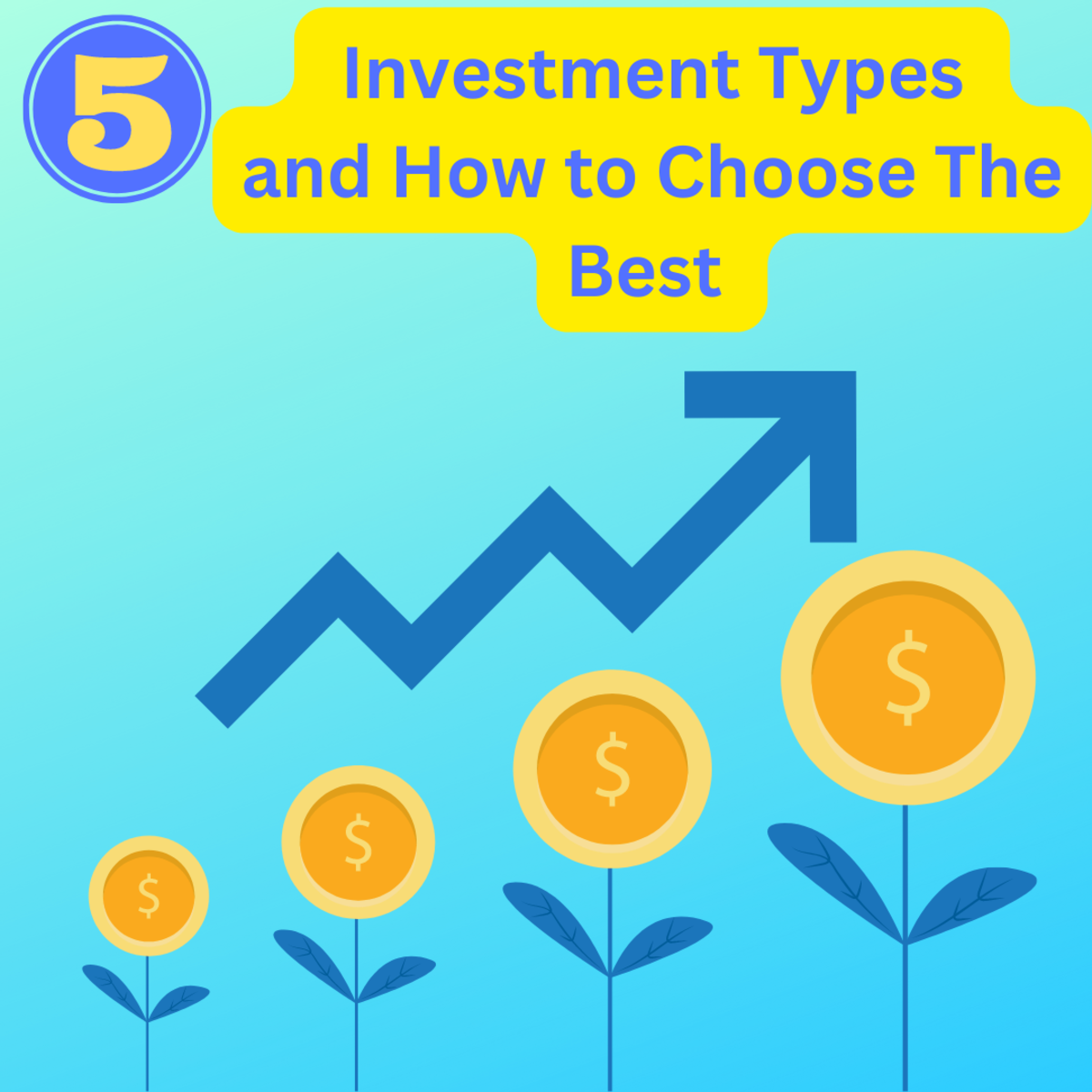How to Lend Money on Private Mortgages

Lending money on private mortgages can generate multiple types of income. Private investors or lenders can finance mortgages primarily through two different means. The first is simply via a direct private loan, while the other is through a responsible entity like a bank or a mortgage group. Of course, a private investor makes money on a loan from individuals who wish to borrow money and are willing to pay a premium in the form of interest for the privilege. Private mortgage lenders, therefore, are in essence business owners. The number one thing that an individual considering investment in private mortgages should do is examine the value of the property in question. You should not make an offer on a property without knowing exactly what it is worth, and estimating the potential rate of return on the investment. You should never lend money on a property with an undetermined value. That is why it is important to always have a proper third-party real estate evaluation performed for the properties in question. Hire a real estate assessor with experience and a solid reputation -- preferably one who is familiar with the type of property being assessed.
Institutional Lenders
Institutional private lenders can also offer individuals private mortgages. As mentioned previously, all mortgage lenders are divided into two categories. Some lenders are financed through a direct mortgage entity, while others simply lend money directly. Lenders who decide to lend directly are totally unregulated; in other words, they do not need a license in order to lend money.
However, lenders who lend through a responsible entity -- such as a private mortgage bank, for example -- are subject to regulations that are generally put into place by the lending authority for that lender's nation. Details can vary from country to country, but in most cases this regulating authority will state that if there are any complaints about the mortgage or if the investor defaults on the mortgage itself, they will not pay anything to you for at least 18 months. Obviously, this can be a significant risk for you as a private mortgage lender, since you can find yourself unable to access your money for at least that much time if you are stuck with a problem borrower. Nevertheless, you will need to abide by these types of rules that apply to institutional lending. Nonetheless, it can still be a good strategy for some since those who fear bearing the total weight of the loan guarantee themselves may appreciate having some assistance from these regulating authorities -- slow to act though they may be.

Partnership Opportunities
Another potential advantage of this type of setup for a private lender is that being part of a responsible entity may give you the option to partner with others when lending money. Joining what is, in effect, a group of venture capitalists can also help remove some of the potential risk of setting up a private lending deal by yourself. Of course, it is still up to you to decide how you want to proceed. There are advantages and disadvantages to both of these types of private mortgage loans -- both in terms of risk and in terms of potential reward. Therefore, only you can make the final decision about which sort of investor you want to be. Do your homework first before deciding on an investment strategy to follow.

Intangibles
In some cases, of course, individuals interested in borrowing money may be nervous about the possibility of working with a lending authority or mortgage brokerage company. In particular, those who are unfamiliar with how private lending works may feel that they have more security when working with an ordinary mortgage brokerage firm than they do when working with a private lender. However, there are plenty of individuals who are just as inclined to work with a private individual as they are with a brokerage firm -- depending on your investment strategy, perhaps even more so in some cases -- and finding these individuals is often not particularly difficult. There are always people who want to finance different economic projects and are looking for a source of available capital. It is simply up to them to determine how they wish to go about acquiring it.

Preliminary Considerations
As a lender, one of your first priorities before offering a private mortgage is to locate a qualified attorney. Of course, you will want to ensure that you find a lawyer who is well regarded in the business and financial communities. Each country will have one or more databases that you can access to help you find the type of lawyers who are experienced in the unique pitfalls and issues that relate to the mortgage lending industry. They should already be knowledgeable about the private mortgage industry and experienced with any relevant legal issues and should have positive results from any prior cases they have handled involving private lending. Your lawyer should also be able to point out any potential problems with the agreements you present to them to review on your behalf ahead of time. That being said, it is up to you to do your homework on your broker, your borrower, the property and any individuals you may consider lending money to, since you are the ultimate guarantor for any monies being lent out.
Any money you do agree to lend out can be for either a short term or a long term loan. The loan length you choose to offer is simply based on your preference regarding the type of borrower you accept. Some individuals are simply looking for loans for a short term cash requirement, while others are looking for loans to deal with a long term investment project. Remember, as the lender you have total control over how long a loan term you are willing to offer. Of course, you need not offer only one large investment at a time. To spread out their risk, many private mortgage lenders find multiple smaller clients and lend money to all of them at a reasonable rate. This allows them to make money on several investments at a time, minimizing their possibility of significant financial loss. As long as you remember to do your due diligence on all of the small properties you are considering, you may find this strategy preferable. Ideally, a range of investments along these lines should successfully earn you money in both the short and long term. Lending any money involves a certain element of risk, no matter how thorough your precautions ahead of time. You can make the lending process easier and safer for all parties concerned by doing your homework, however -- especially by having all properties assessed before you make any decisions about offering a loan to the purchaser.

Brokers
Early in the loan process, you should have your lawyer advise you about brokers that could work with you. Talk to at least five or six of these brokers to get an idea of the types of business they have available, and how you as a private investor could earn a return on these deals. The brokers can fill you in on their investment properties and what the odds are of being able to capitalize on their mortgage deals. A broker will typically be able to send you information about particular scenarios as they come up. For instance, they may have a trucker who wants to expand his business. In order to accomplish this, he needs to inject capital into the company. You as the investor must then decide whether or not to invest in the deal. Since in order to make an investment you would need to examine a real estate evaluation of the properties, you may opt to invest a small amount of cash in the form of a loan -- say 8.5 percent. You may want to have the borrower pledge the trucks as collateral for the loan. It is up to you as the investment professional whether or not to use the option to invest in this particular project or to give it a pass. However, if you do decide this particular project is a viable option for you, you will want to discuss these options and terms with your prospect, i.e. the truck owner.
Once the two of you reach an agreement on the terms of the loan, you will then pass this information on to the broker and to your attorneys. You will negotiate through the broker to have a rough written contract drawn up detailing all the terms of the lend you will be providing and its repayment terms, the percentages, amounts and interest rates you have negotiated with the truck owner and property owner and any other relevant details. The brokerage agreement may need to be amended several times until it reflects terms with which all parties are satisfied. The borrower and you as the financier will sign the final agreement. Under no circumstances should you sign an agreement with which you and your attorney are not perfectly satisfied. Both you and the borrower should be in perfect agreement on the terms of the loan so that there are no problems down the road, such as the borrower alleging that he did not have access to all the facts or did not fully understand the loan terms. These types of allegations could lead to long, tedious and costly arbitration hearings; taking all possible precautions to prevent this, therefore, is well worth the hassle.

Special Risks
An important point to remember, as a private investor, is that a certain subset of the borrowers you will encounter are those who have their back up against the wall financially. They may owe a great deal of money on their mortgage, be in excessive debt or have been turned down for loans by several other sources. These are borrowers you should generally avoid since, if they are struggling to meet their other financial obligations, the odds are good that they could default on their financial obligations to you. Be prepared to lose money on this type of deal; there are exceptions, of course, but most of the time the risk is not worth the reward. Much better investments would be individuals who have some resources and want to finance a project with sound repayment plan. You might think this is simply common sense, but many inexperienced private investors do get sucked into financing loans for those who are unlikely to be able to repay them. Be patient, therefore, when making decisions; only agree to the loans you and your attorney are certain are wise investments.
After all interested parties have reached an agreement on all terms of the contract, your attorney will examine the paper's final version. He will be able to advise you on whether to sign it. Of course, your lawyer will not be able to give you any definite guarantees about your financial prospects from the deal. He will simply be able to point out which terms or sections are unclear or questionable in the contract, ensuring that it is legally valid.
Your attorney will also be able to perform all necessary searches to ensure that there is a free and clear title to the property, and that it does not have any additional liens or obligations. He will file the documents with the proper authorities and make sure they are a matter of record with any relevant jurisdictions. It is vitally important that should you need to refer to the documents in question you have access to them. Naturally, you will also need to keep a copy of this documentation and be able to refer to it if any questions come up.
Your broker should be someone who is familiar with the laws relating to your investments, who will not undercut you behind your back and who has consistently sound ethical principles. Some brokers who might have been reputable in the past may choose to engage in questionable business practices during economic downturns or when faced with the prospect of a significant payday. You can do your best to find a good broker, but you really will not know whether they can be trusted and if they have your best interests at heart until you are in the midst of a deal. Therefore, your best bet is to rely on the advice of others who have worked with this broker in similar situations in the past. If possible, talk to lenders with whom they have worked before; find out what these lenders thought about the attitude and honesty of the broker in question. Lenders who have worked with the broker in the past, and are satisfied with their performance, are probably going to be your best resource for determining who to work with on a particular deal.
Signing the final version of the documentation is the last step in starting your first investment. Naturally, lending money on private mortgages is not for everyone, but it can be a viable source of supplemental income if you have the money to lend out. Many individuals who have some extra money to invest feel that lending it on private mortgages is an under-explored income source. Due to the somewhat elevated risk of unique investments like this, you should pick the properties you wish to lend on carefully. Careless investments on private mortgages will bring you nothing but headache, and potentially serious financial loss. That is why it is important to find out as many details as possible on the borrower and the property prior to lending the money. In this situation, as in most others, knowledge truly is power. The more you know about the properties and borrowers in question, the more informed a decision you will be able to make about whether to lend money or not. If you do decide to agree to a loan, this information will help you ensure that you set up the loan terms in the wisest way possible.

Final Considerations
Due diligence is simply the technical term for performing this type of thorough investigation of properties and borrowers before you sign any contracts. It is important that you not rely solely on the opinion of brokers and attorneys with whom you work for this due diligence. Although their contributions can be very valuable and helpful, it is also in their interest to see deals set up. Therefore, you should also rely on disinterested third parties for these evaluations. For example, even if your broker brings your attention to what he and you both believe to be a great deal, make sure you have the property inspected and evaluated by a real estate assessor to determine its actual value. The importance of this point for a private mortgage lender cannot be overstressed, particularly when you are first getting started. Even though the average property may only make you a 9 to 12 percent return, it is still critical that you track down all relevant information prior to making a decision to lend. Otherwise, you could find yourself facing a major financial loss. Savvy investors want to make sure that the value of the property in question is not going to evaporate overnight. In fact, the most important decision you will have to make as a private investor -- frankly, the decision that separates the success from the failures in this field -- is how much the property is actually worth, and how much will be the rate of return it can provide. Simple though this sounds, many are unable to accurately determine these numbers. Private investors who end up getting into trouble are usually those who fail to accurately anticipate their return in light of market fluctuations and similar factors. Unfortunate though this may be for those who are unsuccessful, the fact is that if learning this information and making these decisions were easy, everyone would do it and the industry's income potential would quickly plunge drastically.
For instance, if you are considering lending money for a service station, you will need to make sure early in your decision-making process that its owners have all of their necessary environmental licenses and occupancy certificates up to date. If the business has any discrepancies, errors or other issues with any applicable government environmental regulations or similar policies, you should walk away well before lending out any money. Check with local environmental authorities to make sure that the business has all of its relevant credentials in order before you move on with the investigation and decision-making process.
If you are considering lending to potential borrowers who have mineral rights on their properties, it is also important that you study detailed documentation about what income levels these rights earn for the property owners and what obligations and other financial impact -- positive or negative -- this has on the property and its owners. If necessary, these issues can then be factored into the loan terms. Regardless of the specific type of potential borrower, the main point is that everything even conceivably relevant should be considered and factored into the decision, and into the loan terms themselves if you do decide to lend. Becoming almost obsessively knowledgeable about every possible detail of the deals you consider may make the difference between your success and failure.
How do you select the investments you pursue?
Legal Disputes
Of course, the borrowers will also have a great deal to say about the terms of the loan in question. If at some point they feel the contract is unfair, they could actually take you as the lender on the property to court and say they are not interested in paying the mortgage anymore because its terms were inappropriate or unclear. The judge will then examine the case and render a decision about the legality of the contract. This is another reason why you should have a savvy and experienced attorney on your side, both to minimize the risk of this occurring and to ensure that you are justly represented in court if it does occur. Many property owners will tend to get the benefit of the doubt in court regarding some type of dispute over a point on the contract. This should not discourage you from lending in the first place; it should simply remind you of the importance of having every single detail of each contract you sign spelled out thoroughly.
Of course, this also ties into the previous discussion about the importance of information before you make a decision about a loan. Finding out as much as possible about the borrower in question could well help you avoid a legal or financial land mine before it does you any harm. Unless you deliberately choose to take a major risk in exchange for a greater potential reward, and can handle the financial loss if something goes wrong, it is very important that you only lend to individuals who have a solid track record of fiscal responsibility. The odds are good that if they have been responsible in other areas of their life -- especially in terms of past financial obligations -- they will be less likely to cause any legal or financial problems in regards to the loan they are seeking from you. Every loan includes some element of risk, of course. Most successful lenders simply learn how to effectively minimize their exposure to it.
There are certain very unique advantages to lending money on private mortgages besides the obvious potential for financial gain. In many cases, you will be helping an individual better their lives financially when they might not otherwise be able to do so. This type of situation is not for everyone, but when properly handled it can be beneficial to all concerned. Putting into place and then consistently following common-sense safeguards, as well as relying on a qualified attorney, can go a long way toward helping you make safe, worthwhile deals.
Remember the old adage about needing to spend money to make money. You are always taking on some element of risk by agreeing to make a private loan to another party. However, this situation has worked successfully for many individuals in the investment world. You can often earn a solid profit if you take the time to research each situation thoroughly before agreeing to lend the money. Some loans will work out better than others, of course. However, by using caution, spreading your investments over multiple smaller options and not overcommitting yourself, you may find that lending money on private mortgages is the perfect investment for you.








